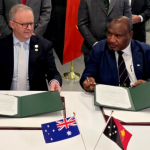Diplomatic tensions rise as China withdraws from London’s energy summit over infrastructure investment controversies
China has announced it will not participate in the upcoming UK energy security summit, co-hosted with the International Energy Agency (IEA) at Lancaster House in London. The summit, scheduled for next week, aims to address global energy security challenges. China’s decision follows escalating tensions regarding its involvement in UK infrastructure projects.
Backdrop of Infrastructure Investment Disputes
The UK’s scrutiny of Chinese investments in critical infrastructure has intensified, particularly concerning the Scunthorpe steel plant and the proposed Bradwell B nuclear power station. The British government recently took control of the Scunthorpe plant from Chinese-owned Jingye Group, citing concerns over the company’s management and intentions. Additionally, plans for China General Nuclear Power Group (CGN) to develop the Bradwell B nuclear project have been shelved amid national security considerations.
These actions have prompted Chinese officials to accuse UK politicians of harboring a “twisted mindset” and politicizing business matters. The Chinese foreign ministry has urged the UK to avoid politicizing economic cooperation and to treat Chinese enterprises fairly.
Summit Participation and Global Energy Dynamics
The energy summit is set to host representatives from over 60 countries, including major oil and gas producers and technology firms. The United States plans to send a senior White House official, while China, the world’s leading producer of clean energy technology, will be notably absent. Observers view China’s withdrawal as a setback for international collaboration on clean energy initiatives.
Critics have also raised concerns about the summit’s agenda, suggesting it may favor fossil fuel interests and underrepresent nations most vulnerable to climate change. Environmental advocates warn that the summit could be used to promote increased dependency on fossil fuels, rather than advancing a transition to cleaner energy systems.
Implications for UK-China Relations
China’s decision to skip the summit underscores the growing strain in UK-China relations, particularly concerning economic and security issues. As the UK reevaluates its stance on foreign investments in critical sectors, China’s response indicates potential challenges ahead in bilateral cooperation. The situation highlights the complexities of balancing national security concerns with the need for international collaboration in addressing global energy and climate challenges.











